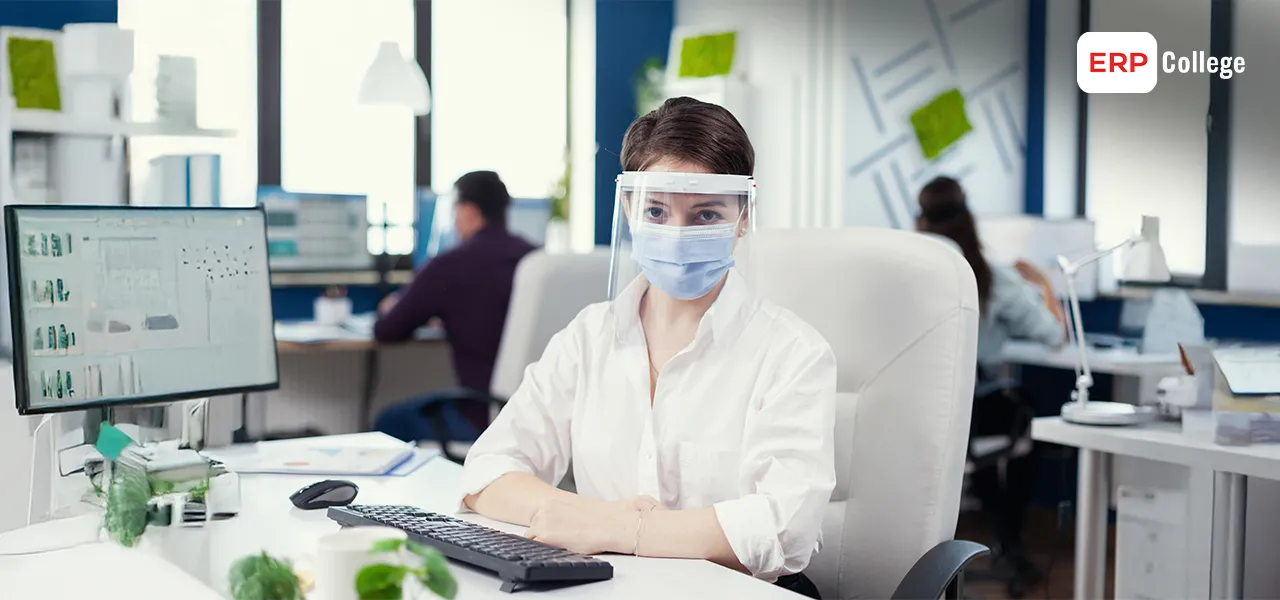Medical Office Assistants have always played an essential role as frontliners in their communities, often being the first person patients interact with when they arrive for appointments. These professionals can be found in various settings such as mental health facilities, research hospitals, and doctor’s offices. As a result, the roles of Medical Office Assistants are consistently in high demand, especially in times of crisis like the pandemic.
However, in the pandemic, the usual scheduling, cleaning, and even taking vitals take longer with the added precautions that come with working while keeping everybody healthy. The usual duties have evolved to act like gatekeepers of the office, which makes them more dependable and better prepared than ever.
Here are some tasks in the workplace that have been impacted by the COVID-19 pandemic:
Triaging Phone Calls
A medical assistant is trained to identify symptoms that require immediate attention, particularly during a public health emergency. As part of the essential roles of Medical Office Assistants, when calls come in, they direct inquiries to the appropriate providers, prioritizing those that appear urgent.
Especially during a public health crisis, the amount of patients looking to get primary care can be overcoming, as the amount of phone calls and emails can be a lot to handle, and is medical office assistants who need to talk to these patients and be able to guide them, and pay attention to the symptoms they are describing.
Screening Patients and Visitors
Have you traveled outside of Canada in the last 15 days? Are you experiencing cold-like symptoms such as a sore throat, a runny nose, fever or cough? Have you been in contact with anybody who has tested positive for COVID-19 in the last 15 days? Are you currently waiting for COVID-19 test results? These are some of the questions that can be encountered when visiting your family doctor, or any medical setting, as medical assistants now have to screen patients and visitors before allowing them in or coming in contact with anybody from the staff. Sometimes, the questionnaire can be done over the phone, pen and paper or through an app before arriving, but in any case, assistants are the ones who have to make sure to receive it, record it, and make it as accurate as possible.
Sanitize Reception Area
Assistants now also have to make sure that everybody coming is wearing a mask and sanitizes their hands as soon as they come in, to avoid exposure to the highly contagious disease. Maintaining the entrance area clean has always been a priority, but in the midst of a public health emergency, it turns into an essential work. Other medical offices also make sure that other patients don’t sit on used chairs, before sanitizing all the chairs that have been used, and they have developed a system to keep track of these, like a sign that can be placed on top with a red background, that way anybody can see it, and assistants won’t miss it. Another practice that has increased is scheduling appointments in a way that patients don’t have to wait together, or be in the same space for a very long time, to decrease the exchange of air between too many bodies.
Keeping Records
The roles of Medical Office Assistants now include maintaining records in compliance with local health regulations. For example, they are responsible for tracking each visitor and keeping a record of everyone who enters, as well as monitoring the number of people in the workplace at any given time to ensure social distancing. This record-keeping not only helps maintain safety protocols but also enables offices to contact individuals who may have been exposed to someone who tested positive. Additionally, Medical Office Assistants must ensure greater attention to detail when submitting insurance claims and patient records, as the volume of both increases during a pandemic. The information collected is crucial for both patient health and public health purposes.
Conclusion:
The roles of Medical Office Assistants now include maintaining records in compliance with local health regulations, a key component of the Medical Office Assistants program. For example, they are responsible for tracking each visitor and keeping a record of everyone who enters, as well as monitoring the number of people in the workplace at any given time to ensure social distancing. This record-keeping not only helps maintain safety protocols but also enables offices to contact individuals who may have been exposed to someone who tested positive. Additionally, Medical Office Assistants, through the training they receive in the Medical Office Assistants program, must ensure greater attention to detail when submitting insurance claims and patient records, as the volume of both increases during a pandemic. The information collected is crucial for both patient health and public health purposes.




